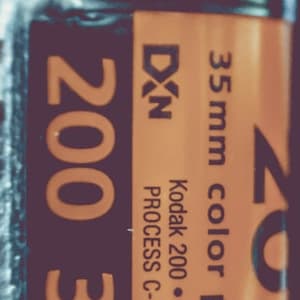final cut: Idiom Meaning and Origin
What does ‘final cut’ mean?
The idiom "final cut" refers to the last version or edit of a film or video that is ready for release. It represents the final decision and control over the finished product, typically held by the director or editor.

Idiom Explorer
The idiom "last word" refers to the final thing that is said or done in a discussion or argument. It implies the idea of having the ultimate say or control over a situation, often in a way that asserts authority or dominance.
The idiom "last thing" means the final action or event that occurs before a particular time or event. It emphasizes the timing or order in which something happens. It can also refer to the least important or least desirable action or event in a sequence.
An idiom that means the final or last gathering or collection of something or someone, often used to express the end or conclusion of a particular event, activity, or period of time.
The idiom "last resort" refers to the final option or action taken when all others have failed or been exhausted.
The idiom "last minute" refers to the final moments before a deadline or event. It suggests that something is done or happens with very little time or notice remaining, often causing rushed or stressful situations.
The idiom "in the final analysis" means that something is being considered or judged after all the facts or information have been examined and taken into account.
The idiom "final nail in the coffin" means an event or action that causes the complete destruction or failure of something, often used to describe the last and decisive blow in a series of setbacks or problems.
The idiom "end of" is used to emphasize that something is final or absolute, with no possibility of further discussion or negotiation. It is often used to express a strong opinion or to indicate a decision that is not open to debate.
Unraveling Creative Control
Final cut is the ultimate and definitive version of a film that has been approved and edited by the director. It symbolizes the end of the post-production process and is widely used in the context of creative projects.
The term "final cut" has been in use since the early 1900s when it specifically referred to physically cutting film reels to create the version shown to audiences. Over time, it has come to encompass editing, sound design, and visual effects in the overall post-production process.
In the film industry, the concept of the final cut holds significant weight as it represents the director's artistic vision and control over the finished work. It serves as the culmination of their creative decisions, portraying the film's narrative and visuals.
Outside of the film industry, "final cut" is also used to describe the ultimate version of any creative endeavor. It is commonly employed in fields such as music, literature, and graphic design, where projects undergo multiple stages of refinement.
In a broader sense, "final cut" can also be metaphorically used to indicate a definitive decision or action. It suggests that no further changes or revisions will occur, signifying an irrevocable outcome.
However, it is important to note that the concept of final cut does not necessarily imply perfection or universal acceptance. Even in filmmaking, the final version can be subject to criticism and revision by external parties such as producers or studio executives.
The idiom "final say" is related to final cut. It signifies having the ultimate decision or authority on a particular matter. In the context of creative projects, it would refer to the director's final say in the editing process and the overall vision of the work.
"in the final analysis" is another related idiom. It suggests arriving at a conclusion or decision after considering all relevant factors. In the film industry, this phrase could be used to emphasize the importance of the director's final analysis and decision-making in the post-production process.
The idiom "last roundup" is also connected to final cut. It refers to the final stage or gathering before the completion of a project. In the film context, it could represent the last roundup of edits, sound mixing, and visual effects before the final cut is achieved.
The idiom "last word" is related to final cut as well, indicating the final and definitive statement on a particular matter. It could be used to describe the director's last word on the editing and creative decisions made in the post-production process.
Final cut is the ultimate version of a film or creative project. It represents the director's artistic vision and control over the finished work, while also signifying the end of the post-production process. However, it is important to remember that final cut does not guarantee universal acclaim or perfection, as it can be subject to external scrutiny and revision.
Example usage
Examples of how the idiom "final cut" can be used in a sentence:
- After hours of editing, the director made the final cut of the film.
- The editor had to make some tough decisions to ensure that the final cut of the commercial was the best it could be.
- Despite the long rehearsal process, some scenes were still removed from the final cut of the play.
More "Film" idioms



